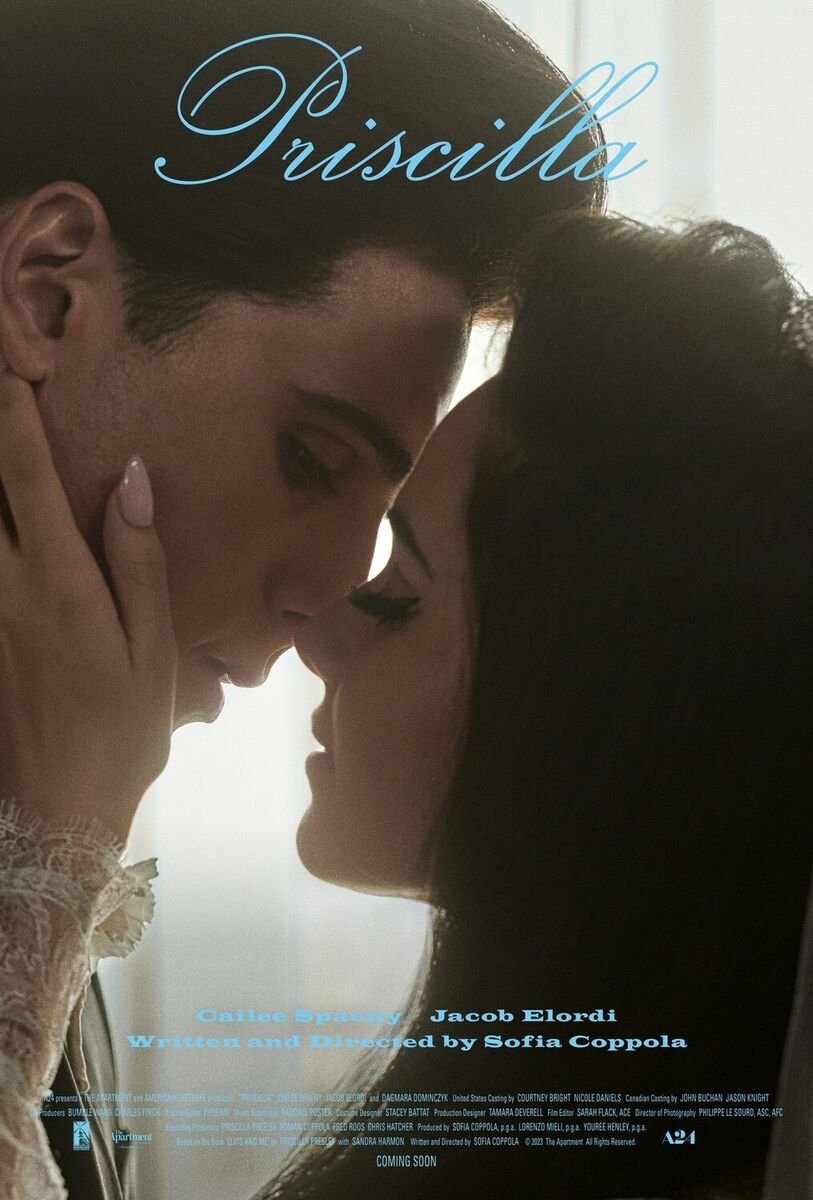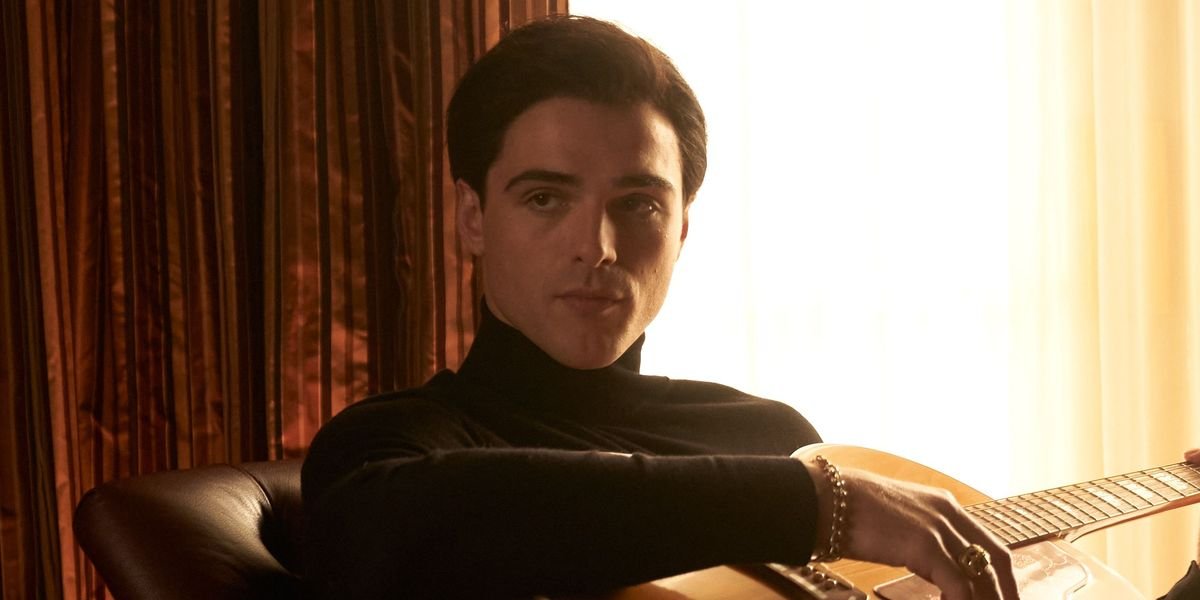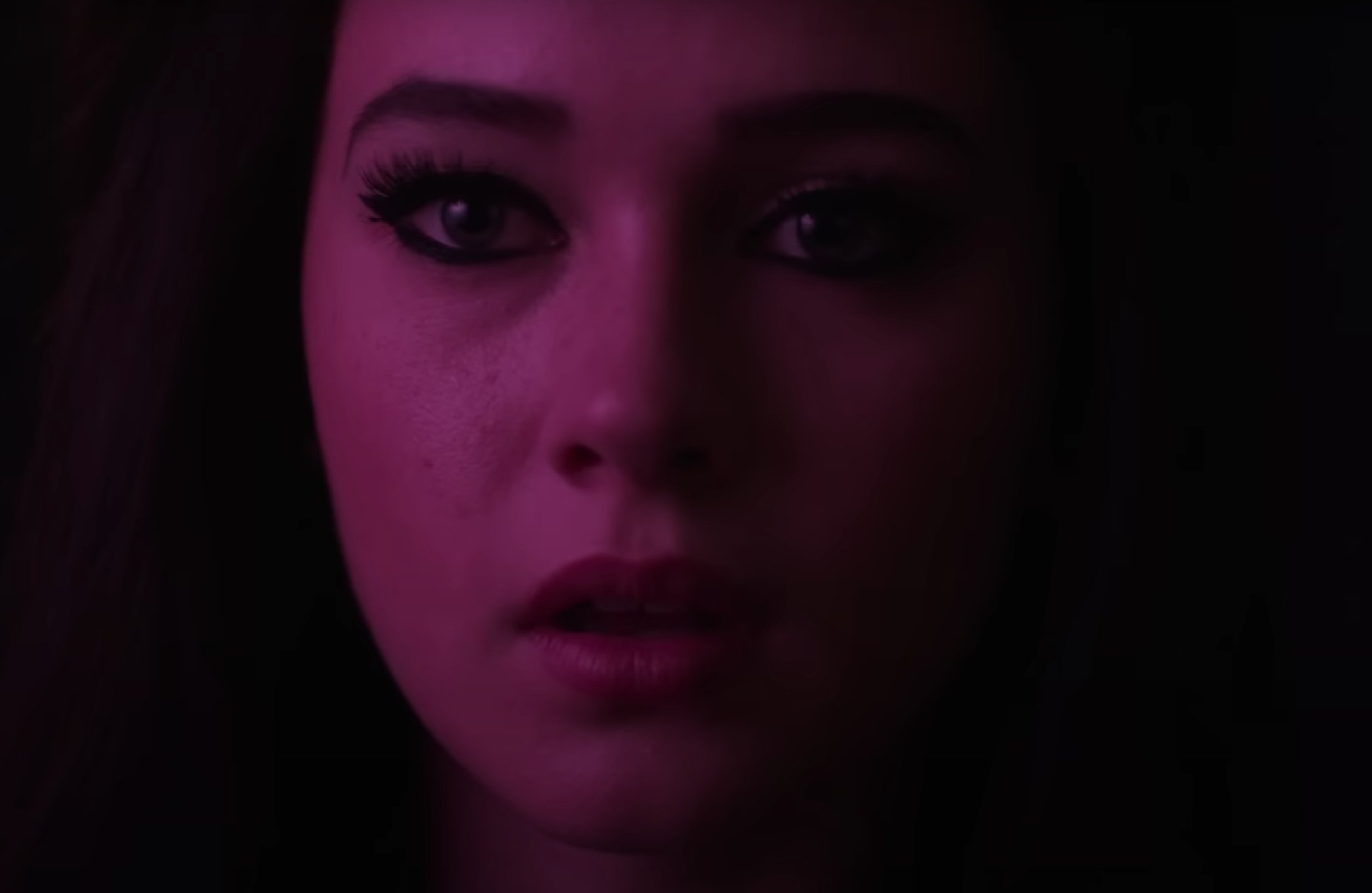The Gorgeous Gilded Cage of Sofia Coppola’s PRISCILLA
Sofia Coppola movies tend to be a dice roll.
I’ve covered it extensively in this space this year already, but I’ve found there to be a unique gap between the ceilings of her filmography and its floors. When she’s really clicking for me, she’s capable of making some of the best movies of the past twenty-five years; 1999’s THE VIRGIN SUICIDES is one of the great tales of suburban ennui from one of the best years Hollywood ever had. Also, its clunkiness in its handling of race aside, 2003’s LOST IN TRANSLATION is still one of the few movies I can pop on at any time, any place, and feel like I’m falling in love with the medium for the first time all over again. Finally, 2010’s SOMEWHERE is Coppola at perhaps her most fundamental and efficient, telling a full tale about a failed celebrity father with a minimum of dialogue. All three are timeless mood pieces about the universal feelings that unite us (even though they are admittedly very white-oriented, something which may be a barrier to truly loving her work. As always, I leave you to determine your personal mileage).
When she’s not really firing on all cylinders (again, at least for me)…well, you get stuff like 2013’s THE BLING RING, a movie that truly stunned me in its complete lack of (or even attempt at) insight, especially given that the topic of star-chasing California vacuousness should have been a layup for Sofia. This is to say nothing of 2020’s ON THE ROCKS, a movie that doesn’t so much stink as it does just kinda sit there, an empty and far-too-light exercise from a filmmaker that is so obviously capable of much more.
With that in mind, then, when I finally went out and saw PRISCILLA, Sofia Coppola’s eighth and newest film, it felt like there was a lot on the line for me. Although 2017’s THE BEGUILED had intriguing elements, Coppola hadn’t really made a movie that I loved in the last thirteen years. I needed her biopic about the famous wife of Elvis Presley, a woman who was able to carve out a sizable acting and business career herself, to at least be adequate. “Make me feel something” is the only thing I asked of it.
I’m happy to report, then, that PRISCILLA did make me feel a little something! It certainly gave me stuff to chew on. I hesitate to call it one of Coppola’s greats, but it’s definitely one of her very goods. It also gave me the energy to move forward with putting a temporary button on another one of my running series. For the last time this year, let’s jump back into the filmography of Sofia Coppola!
———
Although there are many potential aspects within the life of Priscilla Presley (nee Wagner) one could potentially dramatize, PRISCILLA is exclusively focused on her marriage to Elvis. The film starts with a chance encounter on the military base she resides in, a moment that leads to an invite to a party, a party where the starstruck teenager officially meets the celebrity singer for the first time. The film ends with the functional (if not official) ending of their union, as Priscilla finally leaves their home in Graceland for the first time in her adult life. The story is fairly small in scope, yet the lessons to be taken from its telling feels wide-ranged.
PRISCILLA is structured somewhat like a series of vignettes. In one sequence, Elvis provides her some of his sleeping pills, believing them to be safe due to them being prescribed by a doctor; when she wakes up a couple of days later, he seems genuinely apologetic. In another, Elvis rejects Priscilla’s desire for a job; after all, what would happen if he needed her and she suddenly wasn’t available? Thus, as stories of his rumored affairs with film costars start to hit the front pages of the morning newspapers, she has nowhere to go. Despite his insistence that it’s all just junk made up by the media, she has no choice but to take it all in. His alleged affair with Ann-Margaret. His outbursts of anger. His continued substance abuse. His awkward sexual advances. She’s forced to sit in it.
And so are we.
Elvis and Priscilla’s dysfunctional marriage can be a lot to take in at times, although what gives it the Official Sofia Coppola Touch is the cushy wealth and dreamy Graceland extravagance constantly on display, scored with a softer mix of needle drops than you might expect from the same filmmaker who brought you MARIE ANTOINETTE*. At Priscilla’s lowest moments, it becomes clear how quickly comfort and luxury can be a prison. When your husband can pay to have all three of your daily meals served at the door of your room, what reason does he have to let you leave?
*Although I personally really liked the usage of modern tunes in MARIE ANTOINETTE, there is nothing as jarring as The Strokes utilized here.
The main driving force that makes Elvis’ behavior on display so striking, however, is the stark age difference between he and Priscilla. On the day they met, Priscilla was 14, Elvis 24. By the time they officially wed on May 1, 1967, she was only 22. It’s one thing to know intellectually that Elvis’ only marriage was between him and a teenager; for all of his immense accomplishments and legacy, it’s still one of the most known things about him. It’s another to see it dramatized for ninety minutes straight, even if the exact truthfulness of what you’re experiencing can depend on who you talked to.
Speaking of, QUICK SIDEBAR! For several reasons, I disengaged from diving in too much about the real lives of Elvis and Priscilla, a move that the more attached might object to. I do acknowledge the movie is based off of Priscilla’s 1985 memoir Elvis and Me, and that Priscilla was an executive producer on the film itself. I also acknowledge that Lisa Marie Presley emailed Coppola last year with her concerns regarding her father’s portrayal in the film’s script. It can be difficult to form an opinion about the movie, then, without feeling like you’re secretly taking sides in what is clearly a sore subject for the family.
Like all human beings, I strongly suspect Elvis revealed different sides of himself to different people, resulting in these divergent opinions about his character. It’s tempting to walk out of PRISCILLA wanting to hate Elvis; however, I will make the obvious point that he’s no longer here to defend himself one way or another. Beyond that, I am not in any way either an Elvis or Priscilla biographer; thus, I made the call that fact-checking PRISCILLA was not within my purview. There are a lot of excellent articles that do exactly that, and they provide good context for their lives in the real world. It might also help you calibrate your expectations for the film.
For me, I wanted to review PRISCILLA as a Sofia Coppola movie and nothing more.
(It’s also why I resisted the temptation to catch up with ELVIS, the glitzy Baz Luhrmann movie from last year that earned Austin Butler a presumably well-deserved Academy Award nomination. Directly comparing ELVIS and PRISCILLA admittedly seems like the obvious and appropriate thing to do; however, despite their clearly opposing titles, I’ve never gotten the impression that they’re really in competition with each other, either onscreen or off.)
As a Sofia Coppola movie, then, it seems to me that the story of the Elvis-Priscilla marriage is being used as a vessel to explore a social situation far too common to the human experience: a young girl being plucked from obscurity to be the beau of a powerful and influential man, the subsequent existence within a gilded cage, and the relative normalization of this kind of set-up. Again, walking away from PRISCILLA wanting to furiously cancel a long-dead Elvis Presley is somewhat understandable, but also somewhat missing the point. Instead, one has to wonder why this sort of thing is so easily allowed to occur, and why it’s more or less accepted. It’s a substantial thought to chew on, and one that’s still rattling around in my brain all these weeks later.
A criticism of PRISCILLA I’ve seen occasionally thrown around is Jacob Elordi’s portrayal of Elvis, at least in terms of its accuracy compared to Austin Butler’s work in the same role just one year prior. And, it’s true that Elordi doesn’t look or sound all that much like Elvis, really at all. However, I’d argue a depiction need not be 100% accurate or faithful in order to be effective. Just as a random example, Will Ferrell’s work on SNL and Broadway as George W. Bush was a wildly unconvincing impression that nevertheless cut to the heart of what Bush felt like, at least at the time. Elordi’s performance is like the dramatic version of that, I suppose. It’s not a perfect imitation, but because of him, you feel the tension and ping-ponging feelings that Priscilla (who is the main focus, after all) might have felt on any given random day.
So, no, there’s no comparison between Elordi and Butler (at least, I presume). However, Coppola’s focus is different than Luhrmann’s, and the scope of her Elvis’ performance appears to be calibrated in kind. At the end of the day, the onscreen star of PRISCILLA is Priscilla herself, Cailee Spaeny.
Spaeny ends up being a casting coup, if for no other reason than she manages to play so much younger than she really is. For all intents and purposes, the two leads here are the same age (Spaeny is 25, Elordi 26; thirteen months separate them). However, the age gap still manages to read perfectly, because…well, she just looks like a teenager. Maybe it’s her eyes, maybe it’s her size, maybe it’s the soft way Coppola films her throughout*, maybe it’s all of those things. Any way you slice it, you get uncomfortable seeing the two engaged in anything resembling romance. It’s a nice touch.
*In the tradition of Kirsten Dunst and Scarlett Johannson, Cailee Spaeny turns out to be an ideal “Sofia lead”. Coppola’s camera loves her.
It also helps that Spaeny is terrific as Priscilla. Like almost all Coppola leads, the role is written on the page as more internal, and Spaeny gives an understated performance in kind. Although the story PRISCILLA tells is not precisely a revelatory one, it’s still crucial that the emotions that come from dramatizing a turbulent and inappropriate relationship feel real. Spaeny essentially nails it at every turn; she’s enamored and intoxicated with the glitz and home comforts that come with celebrity. She makes her buy the isolation and pain that comes with being with a public-facing heartthrob, a man who frankly has different needs than a civilian ever will. You feel her rationalizing when he loses his temper, when he essentially demands she get used to his affairs, when he changes her and builds her up into his desired image. You feel for her, which (as I identified earlier) was my baseline ask of this movie.
PRISCILLA isn’t perfect; watching it, I get the sense that, at this point, Coppola has likely revealed everything about her filmmaking technique that she’s going to. Sofia Coppola’s movies have never been traditionally plot-heavy; they instead rely on the emotional truth of the situation being depicted. Although she’s only made eight feature films, she’s been at this for twenty-five years. This reliance isn’t going to change. This is just who she is, and when it works, she’s transcendent. Her very best films take a hold of you so intensely that they are difficult to shake. When they don’t, her movies can erode quickly.
It’s a difficult alchemy, one that PRISCILLA doesn’t quite reach for reasons I haven’t been able to put my finger on. There’s nothing to point to and say, “this doesn’t work”. It’s actually an uncommon movie that doesn’t really have anything wrong with it. BUT, I think the bar is just set so high for me when it comes to Sofia Coppola. I mean, LOST IN TRANSLATION literally caused a euphoria in me the first time I saw it. PRISCILLA simply didn’t; however, that’s a insanely unfair standard for me to keep setting her against.
Because PRISCILLA is absolutely good enough! It’s not at all difficult to take the general framework of this story and apply it to any number of age-gap celebrity marriages and relationships. Many of them are famous enough to jump to mind almost immediately; we’re all mostly familiar by now with Jerry Seinfeld’s relationship with a teenager back in the 1990’s, at the height of his sitcom’s fame. Sure, she had essentially just turned 18 when she and the 38-year old comedian made it official, so it was all technically legal. Same goes for actor Doug Hutchison, the man who married sixteen-year-old Courtney Stodden back in 2011, a story that ran in the media mostly as a sort of freak show curiosity: see this gross guy with this crazy girl?
Jerry Lee Lewis. Bill Wyman. Jimmy Page. Hell, going out with younger people is not the sole domain of celebrity men. Ask Nicole Scherzinger, who dated a 19 year old Harry Styles when she was in her mid-thirties. Age-gap relationships are common enough in entertainment that it’s practically assumed at this point.
But does that negate the possibility of damage? Does it negate the morality of it all?
I think that’s the real power of Sofia Coppola’s new movie. Not so much that it brings up something nobody’s ever heard of before (celebrities being bad? Who knew?). But, rather, it’s the way she makes you sit with how being in an underage marriage with the biggest star in the world might feel, both the ecstasy and the agony. It shines because Priscilla’s conflicting emotions are depicted beautifully by Cailee Spaeny. It works because Jacob Elordi connotes the idea of Elvis so well. It’s effective because Sofia Coppola has never lost her eye for lush imagery.
The point is, is that PRISCILLA works. Consider me relieved.





